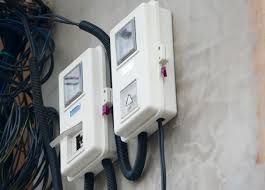Electricity generation companies in Nigeria, under the umbrella of the Association of Power Generation Companies (APGC), have strongly criticized the Enugu Electricity Regulatory Commission (EERC) for its recent decision to slash Band A electricity tariffs. The GenCos warn that the move could worsen the already fragile financial state of Nigeria’s power sector.
On Sunday, the EERC announced a new tariff structure for MainPower Electricity Distribution Limited, reducing the Band A rate from N209/kWh to N160/kWh—a N49 cut set to take effect on August 1.
The commission defended the reduction as a “cost-reflective” model aligned with the federal government’s electricity subsidy framework. According to EERC, only N45 of the N160/kWh is allocated for generation costs, despite actual generation costs being around N112/kWh.
“No Policy, Just Debt,” APGC Fires Back
In a statement on Monday, Joy Ogaji, CEO of the APGC, raised serious concerns about the logic and sustainability of the new pricing model. She challenged the commission’s reliance on subsidies, arguing that there’s no official federal policy supporting this kind of financial intervention.
“It is imperative to state that there is no FGN policy on subsidies. It is debt accumulation! If anyone has the proposed policy document, please share it publicly,” Ogaji said.
She warned that the tariff cut sends the wrong signal to other states considering power sector decentralization, potentially discouraging private investment and worsening the sector’s liquidity crisis.
“From EERC’s tariff order, only N45 is captured for generation cost out of the actual N112. This portends a bigger issue in the decentralisation of power or electricity to the states,” she added.
Mounting Debt and Unfunded Subsidies
Ogaji questioned how the EERC plans to address legacy debts—some dating back to the privatization of Nigeria’s power sector—while relying on federal subsidies that may not be sustainable.
“Does this position mean EERC is expecting the FGN to continue subsidizing electricity? How will they account for their share of the accumulated sector debt, or are they assuming assets without liabilities?”
She also highlighted that the N900 billion allocated for electricity support in the federal government’s 2025 budget is not only insufficient but not yet cash-backed.
“The N45 for generation cost out of an average N112 implies only 40% of the actual cost is covered. That leaves 60% dependent on a federal subsidy that may never materialize,” she warned.
N4 Trillion Debt and No Repayment Plan
The APGC boss revealed that power generation companies are currently owed over N4 trillion, with no credible strategy in place for repayment.
“There are no workable solutions—whether cash payments, financial instruments, or debt swaps—being proposed to clear the debt,” she said, stressing that the issue demands urgent attention from the highest levels of government.
Ogaji concluded by urging the federal government to intervene before the situation snowballs into a systemic collapse of Nigeria’s electricity sector.




